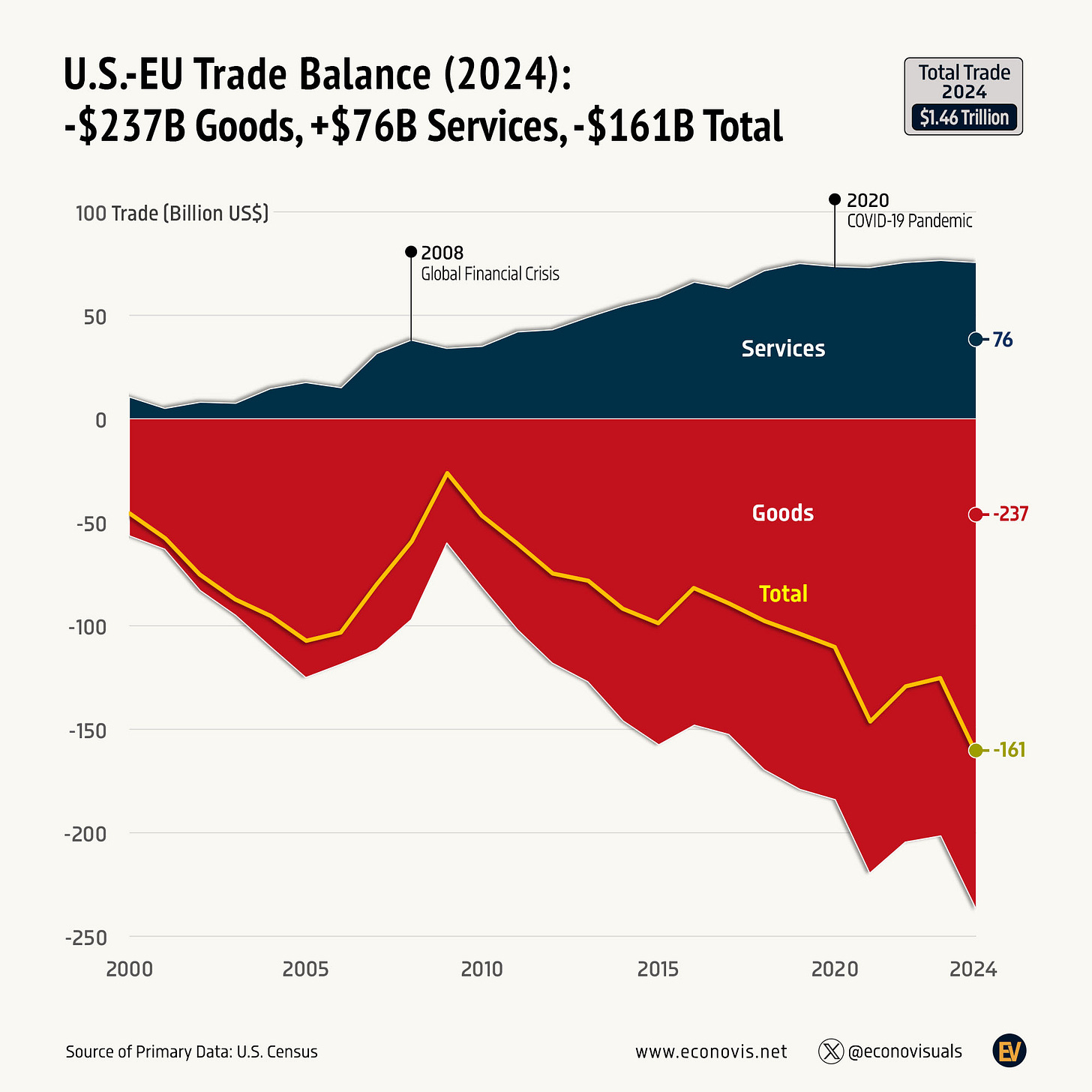When President Trump announced the terms of the pending US-EU trade deal, the world was shocked.
Not only is it the biggest trade deal in history—it unequivocally puts America first.
In fact, when asked what concessions America gave, EU President Ursula Von Der Leyen could not come up with a single item:
Europeans went ballistic. They described this as the death-knell for the EU. Europe has been described as a collection of American vassal states (which is fundamentally accurate).
Even America’s liberals went nuts—the deal was too good for America. They argued that it would undermine America’s political relationship with Europe. We need to deal fairly with our allies to promote mutual prosperity.
Too good?
How can a trade deal be too good? The point of negotiating is to get the best possible deal that you can. If you have leverage, you apply it—ruthlessly. President Trump has a fiduciary obligation to uphold the American people’s best interests.
Assuming the deal is as advertised (no one should hold their breath), then this is a very good deal for America. To summarize:
EU goods taxed at 15%, while US goods taxed at 0% (some industries are subject to different tax regimes);
EU to buy $750 billion worth of American energy over 3 years;
EU to invest $600 billion in America (unclear how this will be done, apparently Japan’s investment is being done by way of loans);
EU to buy more (unspecified amount) of US military equipment.
The tariffs are asymmetrically weighted in America’s favor. This alone is a big win, and should help to redress the balance of trade. Remember, American industry is significantly more productive than European industry (perhaps 40% more productive on average).
According to classical economics, this should have resulted in America having a trade in goods surplus with Europe. This is not the case because of asymmetrical trade barriers. These have been somewhat redressed (although non-monetary barriers will remain a problem).
Perhaps more importantly, the EU has committed to buying a comical amount of US energy products—$250 billion per year.
To put this in context, Europe imports ~$400 billion per year right now (about $80 billion is from the US). In order to comply with the terms of this deal, Europe will have to reconfigure its entire supply chain, and make itself highly dependent on American energy.
This benefits America economically and politically—more leverage down the road.
If the EU wishes to maintain diversified supply, then it will need to pay significantly more unit to America—perhaps $250/bbl. Either way, this is a massive win for America.
In fact, this alone essentially wipes out the trade deficit.
Assuming does not get lost in the EU bureaucracy (which is likely), then President Trump deserves congratulations for squeezing the Europeans, who have been piggybacking on America for decades. Time to pay the piper.






